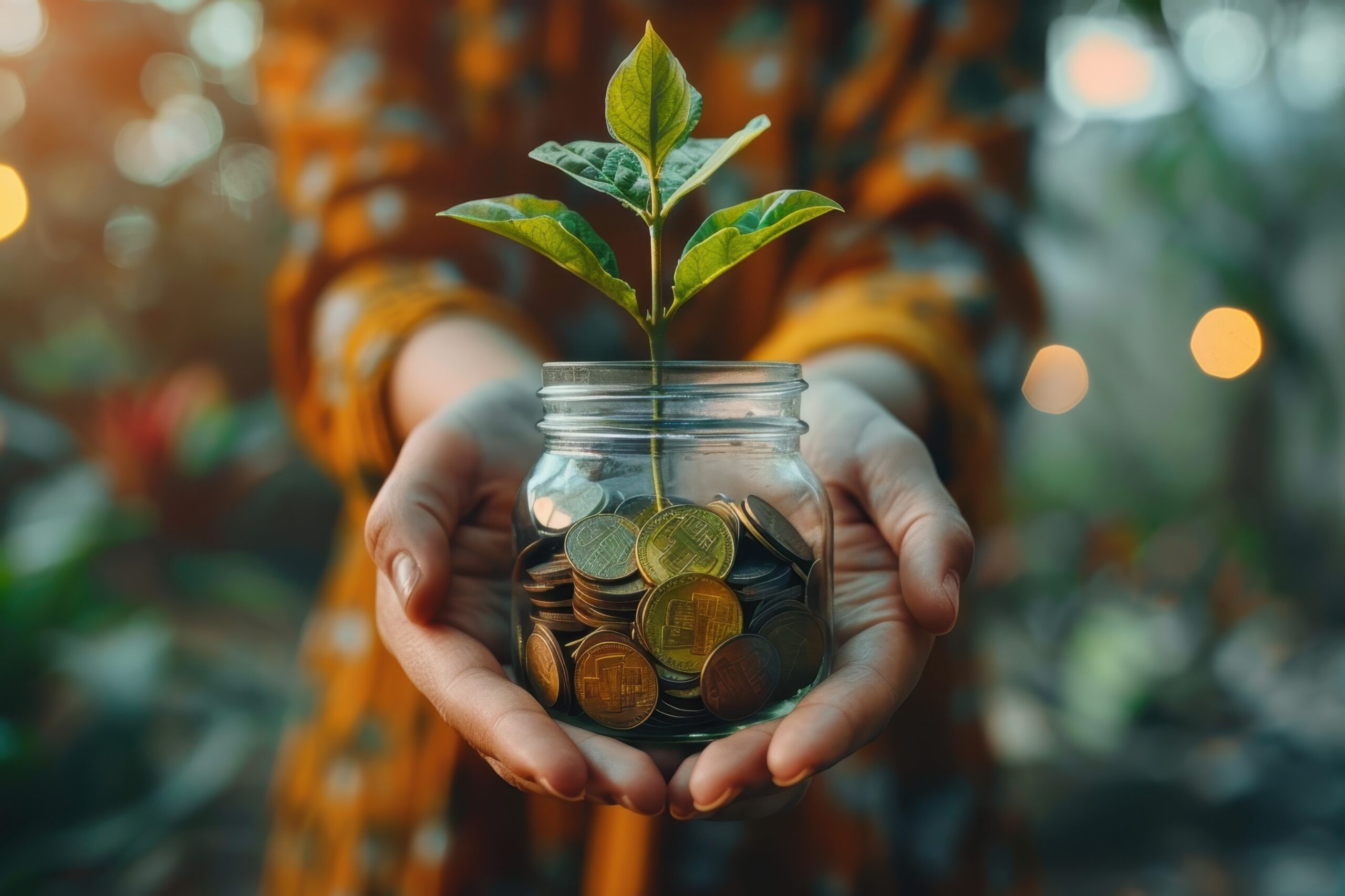Introduction
In a world that often revolves around material wealth, it can be easy to focus solely on the pursuit of financial success, neglecting the emotional and psychological aspects that play a vital role in achieving true prosperity. Yet, research and personal testimonies increasingly demonstrate that gratitude—a simple, often overlooked practice—can improve not only emotional health but financial well-being as well. This article delves into the profound relationship between gratitude and financial health, examining how cultivating a grateful mindset can lead to increased financial stability, attract abundance, and empower individuals to make mindful decisions about money.
Why Gratitude Matters in Financial Well-being
Gratitude is not merely an act of politeness or etiquette; it’s a powerful mental and emotional practice that reshapes how people perceive their lives. When individuals approach their finances with a grateful attitude, they’re less likely to stress about what they lack and more likely to appreciate what they have. This perspective shift can lead to healthier money habits, reduce impulse spending, and foster an overall sense of financial contentment.

1. Understanding the Concept of Gratitude
1.1 What Is Gratitude?
Gratitude is the recognition and appreciation for the positive aspects of one’s life, including relationships, health, experiences, and even possessions. It’s about acknowledging the value of things one often takes for granted. Research shows that people who regularly practice gratitude are happier, more content, and better equipped to handle life’s challenges.
1.2 The Psychological Benefits of Gratitude
Gratitude enhances mental health, reducing stress and increasing feelings of well-being. When people are in a grateful state of mind, they experience fewer negative emotions and are less susceptible to depressive thinking. The brain releases dopamine and serotonin when one feels gratitude, making them feel more motivated, resilient, and satisfied.
2 The Connection Between Gratitude and Financial Health
2.1 How Gratitude Shifts Financial Perspectives
In personal finance, gratitude encourages a mindset of sufficiency rather than scarcity. People who are grateful for what they have are less likely to constantly desire more, which helps them avoid debt, limit spending, and save more effectively. Gratitude can even lead to healthier financial decisions, as individuals are more likely to think long-term when they feel content with what they currently possess.
2.2 The Role of Gratitude in Managing Financial Stress
Financial stress is a common concern, with people often feeling anxious about bills, debt, or the future. By practising gratitude, individuals can focus on the positive aspects of their financial situation, reducing anxiety and allowing them to make better financial decisions. Gratitude, therefore, becomes a powerful tool for mental clarity, helping people stay calm and resilient during times of financial difficulty.

3 The Science of Gratitude and Financial Abundance
3.1 How Gratitude Rewires the Brain for Positive Financial Outcomes
Studies in neuroscience reveal that gratitude activates the brain’s reward center, releasing “feel-good” hormones like dopamine and serotonin. These chemicals foster an optimistic mindset, empowering people to see opportunities rather than obstacles in their finances. Positive thinking attracts positive actions, which can result in increased income, savings, and investments.
3.2 Attracting Abundance Through a Grateful Mindset
Many people believe that thoughts influence reality, a concept known as the Law of Attraction. When people focus on gratitude, they align themselves with positive energy that attracts abundance. This is not just spiritual thinking; people who are genuinely grateful are more likely to engage in activities that improve their financial standing, such as networking, investing in self-improvement, and saving wisely.
4 Practical Steps to Incorporate Gratitude into Financial Life
4.1 Gratitude Journaling for Financial Reflection
One of the simplest ways to foster gratitude is through journaling. Writing down daily reflections on financial blessings—such as a steady job, a supportive family, or recent financial achievements—can help one appreciate their financial position. Over time, this habit can shift focus away from worries and toward a sense of abundance.
4.2 Practicing Mindful Spending
Gratitude teaches individuals to value what they have, which can help them spend more mindfully. By practicing mindful spending, people become more intentional with their purchases, focusing on needs rather than wants. This approach allows for better budgeting, reduced debt, and the ability to prioritize investments that align with personal values.
4.3 Cultivating Gratitude Through Generosity
An effective way to cultivate gratitude is by giving back. Acts of kindness, whether through charity donations, helping a friend, or volunteering, remind individuals of their own abundance and create a cycle of gratitude. Generosity can enhance feelings of wealth, as people recognize their capacity to contribute to others’ lives, which fosters a deeper appreciation for their resources.
5 Stories of Financial Transformation Through Gratitude
5.1 Real-life Examples of Financial Growth Through Gratitude
Several real-life stories illustrate how gratitude can transform finances. One example is of an entrepreneur who, after nearly facing bankruptcy, turned her finances around by focusing on her business’s strengths and expressing gratitude for small successes. Another example includes a couple who eliminated significant debt by practicing mindful spending, appreciating their financial blessings, and saving accordingly.
5.2 How Ordinary People Achieve Financial Success with a Grateful Heart
In every community, there are stories of people who’ve changed their financial narrative through gratitude. These stories demonstrate that anyone, regardless of their starting point, can make profound financial changes simply by adopting a grateful mindset.

6 Gratitude’s Long-term Impact on Financial Freedom
6.1 Building Wealth with a Foundation of Gratitude
Long-term wealth is more than just accumulating money; it’s about creating a secure and meaningful life. Gratitude cultivates patience and contentment, qualities that are essential for steady, lasting wealth accumulation. People who practice gratitude are more likely to invest wisely, save consistently, and avoid impulsive spending.
6.2 Securing Financial Freedom and Peace of Mind
Gratitude encourages a balance between financial goals and personal well-being. When individuals express gratitude, they cultivate inner peace, reducing the anxiety that often comes with financial planning. In the end, financial freedom becomes not only a goal but a byproduct of a life lived with mindfulness and appreciation.
7 Incorporating Gratitude Practices in Daily Financial Routines
7.1 Morning Gratitude Affirmations for Financial Wellness
Starting each day with affirmations like “I am grateful for the financial resources I have” or “I am thankful for my ability to provide for my family” can set a positive tone for the day. Affirmations help build a mindset of abundance, enabling people to approach their finances with confidence.
7.2 Gratitude Rituals to End Each Day
Ending the day by reflecting on financial progress—however small—helps individuals see the positives in their journey. This can be as simple as mentally listing three things they’re grateful for in their financial life or recognizing moments where financial choices aligned with their values.

8 Tools to Support a Grateful Financial Journey
8.1 Gratitude Apps and Digital Tools
Apps like “Grateful” and “Five Minute Journal” can prompt individuals to record their financial blessings daily, reinforcing a habit of gratitude. Other budgeting tools, such as “You Need a Budget” or “Mint,” can help individuals track finances and see their progress, further cultivating a mindset of appreciation.
8.2 Creating a Personal Financial Gratitude Journal
A dedicated journal for financial gratitude can help people reflect on their journey, acknowledge achievements, and stay motivated. This journal can include monthly financial reflections, accomplishments, and reminders of financial goals met with gratitude.
Conclusion: The Lasting Impact of Gratitude on Financial Abundance
Gratitude is an investment in both emotional well-being and financial success. While material wealth is important, the true foundation of financial well-being is the peace and satisfaction that come from a grateful mindset. For those looking to improve their finances, practicing gratitude is not just a supportive tool but a transformative strategy that can unlock new levels of financial freedom, resilience, and abundance. By incorporating gratitude into everyday life, anyone can achieve not only financial stability but a truly fulfilling life.





0 Comments